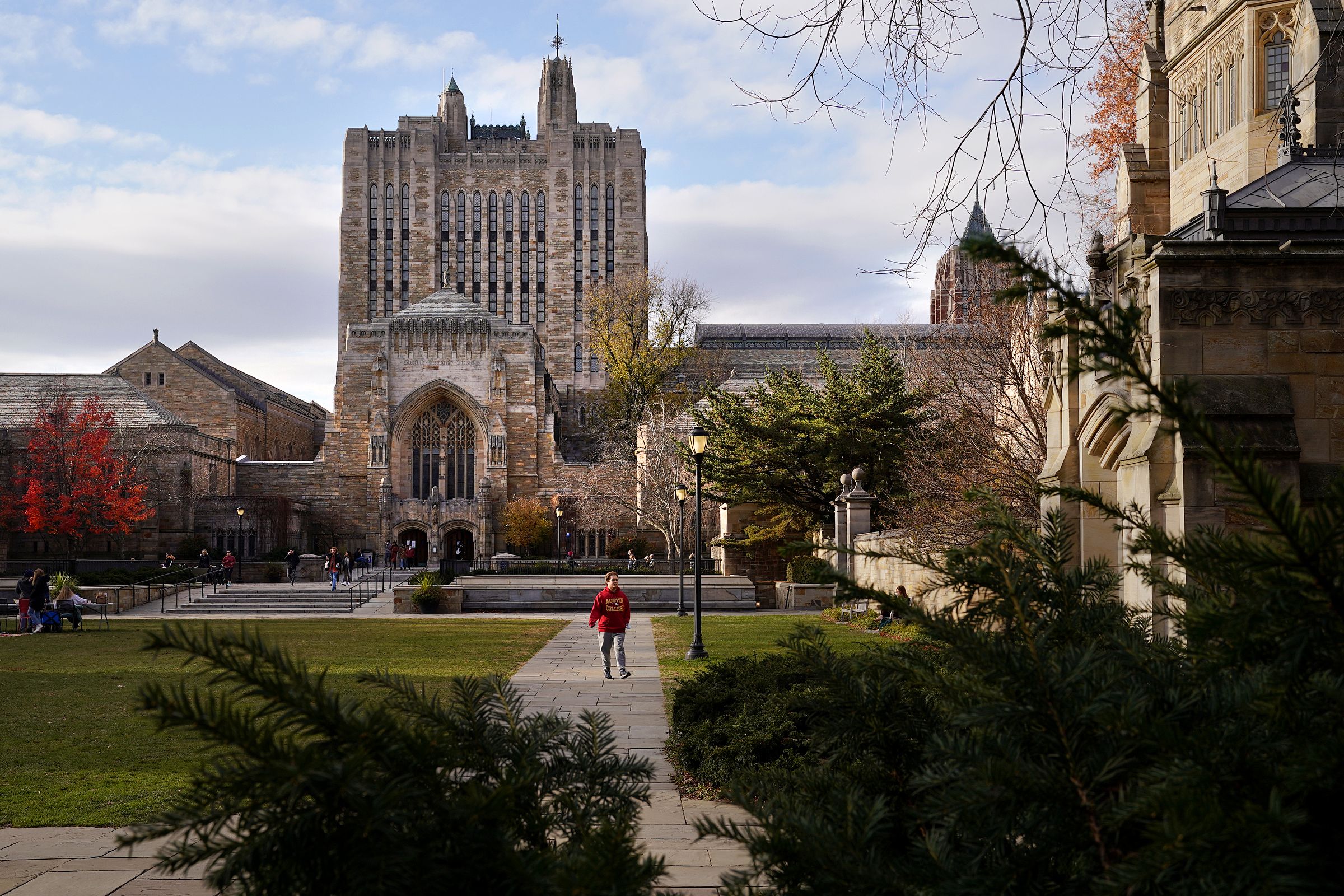Former Yale medical resident deported from Boston airport despite court order
In an apparent defiance of a federal judge’s order, the United States Customs and Border Protection deported Rasha Alawieh, a kidney transplant specialist and professor at Brown University’s medical school who was returning from Lebanon.

Tim Tai
Rasha Alawieh, a nephrologist and assistant professor at Brown University’s medical school who completed the Yale Waterbury Internal Medicine Program in June 2024, was deported from Boston Logan Airport on Friday.
Alawieh, a Lebanese citizen, was detained at the airport when she returned on Thursday morning from seeing her parents in Lebanon. According to a lawsuit filed by her cousin Yara Chehab, the United States’ government approved Alawieh’s petition for an H-1B visa, offered to highly skilled foreign citizens, in June 2024 and issued it at the Lebanese consulate on March 11. Thomas Brown, a lawyer representing Alawieh, said this visa, sponsored by Brown Medicine, was valid through mid-2027.
“The Division of Nephrology at Brown Medicine is extremely distressed at this treatment of their colleague,” the lawsuit reads. “Her colleagues have been covering for her, but that is no solution. Dr. Alawieh is an outstanding academic in Transplant Nephrology, and she is needed at Brown Medicine.”
Alawieh has been studying and working in the U.S. since 2016. After completing her residency at the Yale School of Medicine, she started working as an assistant professor in Brown Medicine’s division of nephrology in July 2024.
Chehab’s lawsuit alleges that the conduct of the respondents — including Homeland Security Secretary Kristi Noem, acting U.S. Customs and Border Protection commissioner Pete Flores and Secretary of State Marco Rubio — violated the Fifth Amendment’s guarantee of due process, as well as the Administrative Procedure Act of 1946 and the Immigration and Nationality Act of 1952.
According to the lawsuit, Alawieh’s family members were not provided with reasons for her detainment and deportation. Brown said Alawieh was denied legal counsel while detained at Boston Logan as she was technically not yet back on U.S. soil.
On Friday evening, federal Judge Leo T. Sorokin ’83 of Massachusetts barred Alawieh’s removal from Massachusetts without 48 hours’ notice to the court. However, she was put on a flight to Paris, from which she was set to fly to Lebanon on Sunday, according to Reuters.
On Sunday, Sorokin said there were “serious allegations” that the U.S. Customs and Border Protection had willfully disobeyed his order and directed the government to provide a response by a hearing on Monday. He added that his Friday order followed “common practice in this district as it has been for years.”
Brown University spokesperson Brian Clark told the Brown Daily Herald that the university is trying to seek more information about Alawieh’s situation.
“We need to be careful about sharing information publicly about an individual’s personal circumstances,” he said.
In a Sunday statement, the Council on American-Islamic Relations, a Muslim civil rights and advocacy group, called on the Trump administration to “immediately readmit” Alawieh.
“Deporting lawful immigrants like Dr. Alawieh without any basis undermines the rule of law and reinforces suspicion that our immigration system is turning into an anti-Muslim, white supremacist institution that seeks to expel and turn away as many Muslims and people of color as possible,” the statement reads.
While the motivation behind Alawieh’s deportation is unclear, it follows President Donald Trump’s increased crackdown on immigration.
On March 8, federal authorities arrested and detained Mahmoud Khalil, a Columbia University graduate and pro-Palestinian activist, despite his Green Card status, sparking nationwide protests.
The administration is also reportedly considering travel bans on citizens of up to 43 countries, which would be broader than the bans imposed during Trump’s first term.
Trump’s second term started on Jan. 20.







